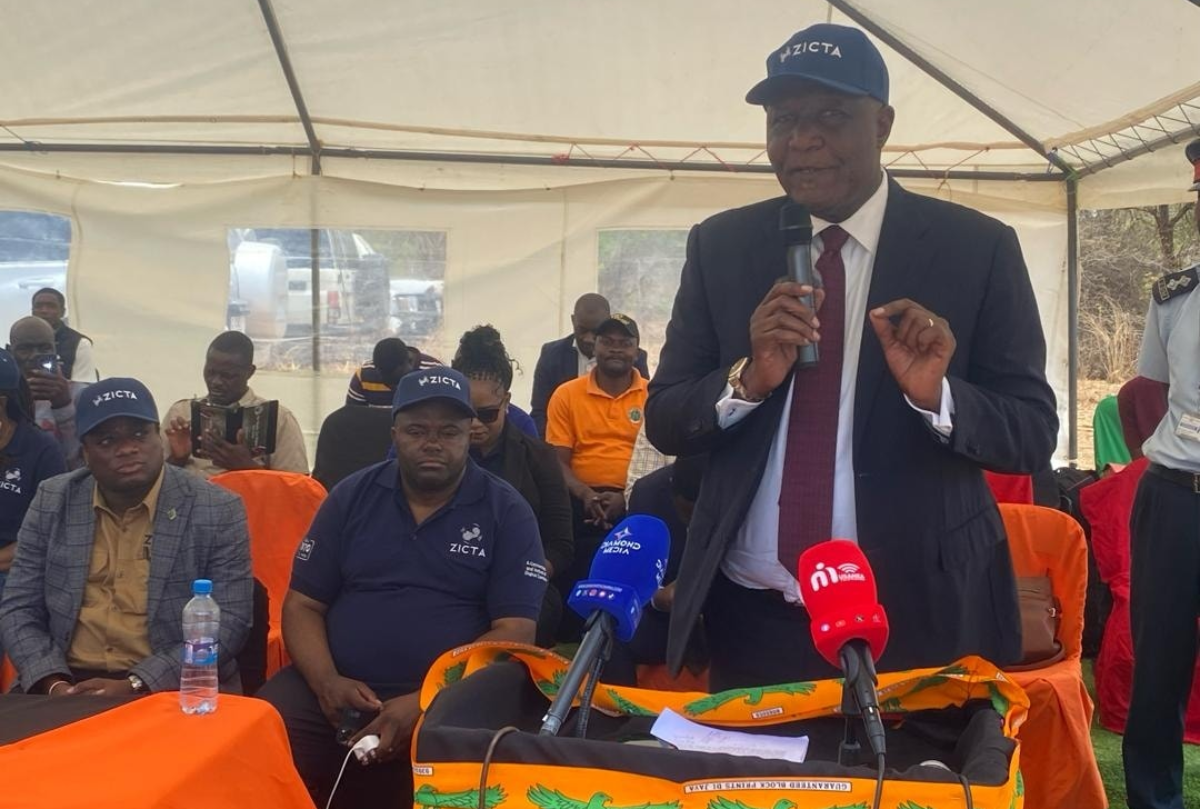Zambia Launches E-Agriculture Project to Drive Smart Farming and Digital Transformation
The project is a collaboration between the Ministry of Agriculture, the Ministry of Technology and Science, and the Zambia Information and Communications Technology Authority (ZICTA).

The Government of Zambia has officially launched the E-Agriculture Project, a landmark initiative designed to transform the nation’s agricultural sector through digital inclusion, technology integration, and data-driven decision-making. The project is a collaboration between the Ministry of Agriculture, the Ministry of Technology and Science, and the Zambia Information and Communications Technology Authority (ZICTA).
The launch, held under the theme “Smart Farming for a Digital Zambia: Empowering Growth Through Technology,” underscores the government’s commitment to using technology as a catalyst for productivity, food security, and sustainable development. The Minister of Agriculture, Hon. Reuben Mtolo Phiri, MP, officiated as Guest of Honour, highlighting the crucial role of digital infrastructure in improving farming efficiency and supporting Zambia’s national production goals.
Hon. Phiri commended ZICTA for its comprehensive support in providing both equipment and training to agricultural extension officers. He emphasized the importance of connectivity for the successful implementation of e-voucher systems and farmer support services. With only 2,620 extension officers serving 3.5 million farmers, he called for increased recruitment and private-sector participation in extension services. He also reaffirmed the government’s targets to achieve 10 million metric tons of maize, 1 million metric tons of soybeans, 1 million metric tons of wheat, and full self-sufficiency in rice production.
Speaking at the event, the Minister of Technology and Science, Hon. Felix Mutati, MP, highlighted the completion of two communication towers in Chongwe, with three more under construction, to enhance rural connectivity. He announced ZICTA’s donation of over 500 tablets to support data-driven agriculture and stressed that digital technology will eliminate guesswork in farming by empowering farmers with accurate data for planning, irrigation, and crop management.
Hon. Mutati reaffirmed the government’s “One Big Team” approach, aligning technology initiatives with national productivity goals under the Eighth National Development Plan (8NDP) and Vision 2030. He described technology as the backbone of Zambia’s agricultural transformation, linking infrastructure, devices, and digital skills training to create a complete ecosystem for smart farming.
Representing the Minister of Health and Chongwe MP, Hon. Sylvia Masebo, Dr. Evans Lupiya, the Chongwe District Commissioner, emphasized that digital agriculture bridges critical information gaps in market data, weather forecasting, and climate adaptation. He encouraged extension officers to treat their tablets as tools of transformation, noting that technology empowers rural farmers to become better land stewards and more efficient producers.
Eng. Collins M. Mbulo, Director General of ZICTA, revealed that the agency conducted a 2022 sectoral gap analysis which identified major ICT deficits in agriculture. In response, ZICTA has invested K5 million in devices and training, distributing 550 tablets across 10 farming blocks and training 28 extension officers in Chongwe to enhance their digital literacy. He reaffirmed ZICTA’s commitment to supporting ICT as a key enabler of economic transformation under national development frameworks.
The E-Agriculture Project marks a milestone in Zambia’s transition to smart, climate-resilient, and inclusive farming. By equipping extension officers with ICT tools, expanding rural connectivity, and promoting data-based farming practices, the government is empowering farmers to produce more efficiently, earn higher incomes, and contribute to national food security.
The initiative reflects President Hakainde Hichilema’s vision of leveraging innovation and technology to achieve sustainable growth, economic diversification, and self-sufficiency in food production. It also strengthens collaboration between government institutions, the private sector, and local communities—paving the way for a digitally empowered agricultural ecosystem that drives Zambia toward a resilient and prosperous future.






